UCLA OMP – Classroom Module: May 9 – 20, 2022
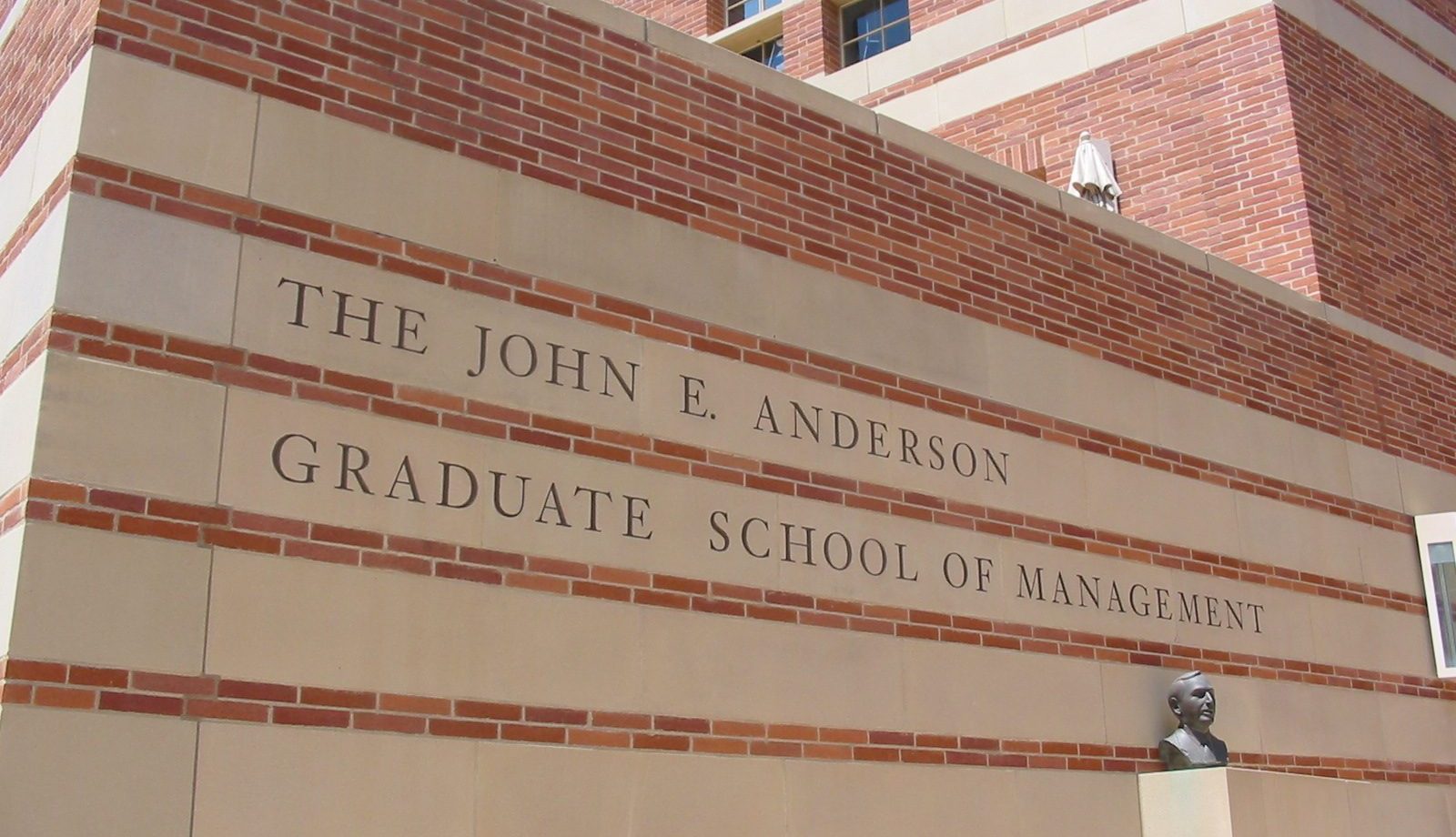

In the May 2022 Module of UCLA OMP, during the two weeks in classroom at UCLA Anderson, you will learn from professors who are the leading experts in their fields and have won several teaching awards at UCLA and other business schools for their teaching and research. You will focus on Business Strategy, Value Creation, Mergers and Acquisitions, Entrepreneurship and its implications in the context of Family Businesses, Persuasion and Influence, Business Simulation, Operating Margins and Capital Intensity with the likes of Senior Associate Dean Prof. Al Osborne, Prof. Ian Larkin, Prof. George Abe, Prof. Steve Walton, Prof. David Wessels, Prof Noah Goldstein and Prof. Andres Terech among other amazing faculty, to learn the management essentials, tools and techniques that are the building blocks of managing a modern enterprise that uses data effectively and efficiently to build brands and serve consumers and customers. This module will build on the learnings from the Entrepreneurship online modules that you have gone through prior to coming to class and the faculty will help you apply your learning through case studies, role plays, exercises and the case competition in real life business situations. As you finish this module, you will transform your strategic management skills and develop the business plan for your organization, preparing for the next level of growth.
Faculty
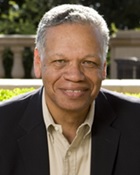
Prof. Alfred E. Osborne, Jr.
Professor
Alfred E. Osborne, Jr., is UCLA Anderson’s senior associate dean for external affairs, with oversight of a variety of key initiatives for the school, including resource development, alumni relations, corporate initiatives and executive education.
Osborne also holds an appointment as Professor of Global Economics, Management and Entrepreneurship and is the founder and faculty director of the Harold and Pauline Price Center for Entrepreneurship & Innovation. The Price Center serves to organize faculty research, curricula and student activities related to the study of entrepreneurship and new business development at UCLA Anderson.
He served as UCLA Anderson’s interim dean from July 1, 2018 to July 1, 2019.
Osborne is interested in leadership development, specifically, “how young people in this turbulent world can find their voice and develop the ability to influence a challenging environment by being powerful. This speaks to my theme of moral, value-based leadership, with an active practice of achieving desired outcomes in constructive and collaborative ways.”
Osborne’s areas of academic expertise include social entrepreneurship and the development of a leadership approach that applies business models and methodologies to the nonprofit world. Under his leadership, the Price Center created a number of management development programs, including five in partnership with health care giant Johnson & Johnson: the UCLA/Johnson & Johnson Head Start Management Fellows Program; the UCLA/Johnson & Johnson Advanced Management Institute for Head Start; the UCLA/Johnson & Johnson Health Care Institute; the UCLA/Johnson & Johnson Health Care Executive Program; and the Management Development Institute (MDI) for health care organizations in sub-Saharan Africa. Several related, innovative programs include the Institute for the Study of Educational Entrepreneurship (ISEE) and the UCLA/Los Angeles County Office of Education (LACOE) Head Start Leadership Institute.
A deep belief in the value of entrepreneurship has guided Osborne’s vision for what is possible throughout his decades-long tenure at Anderson. In addition to founding the Price Center, he facilitated infusion of an entrepreneurial approach to leadership into the Anderson culture and curriculum, including and transcending the notion of business startups.
“Societies that don’t innovate are destined to die,” Osborne says. “My view was that our MBA students could benefit from understanding things from an entrepreneurial point of view.”
Osborne combines his emphasis on innovation with a deep belief in the value of a broad-based diversity that includes demographics but, just as important, a wide range of ideas.
“The value of cognitive diversity ― the acceptance of different points of view as expressed typically by different ethnicities, genders and cultures ― is the secret sauce of the American experience,” he says.
“I think we need to respect and cherish more of that. Life experiences shape peoples’ perspectives, and someone who grew up in a different culture is the gist of construction, connection and valuable conversations. I am a product of that diversity, coming to this country from Panama. My goal is simply to encourage people to get out into the traffic of ideas and collide with somebody with a different point of view. Physicists tell me there’s no work unless there’s friction and there’s no power or energy without collisions. Let’s collide in a more inclusive and respectful way,” he says.
Osborne is an active participant in the business community, serving as a director of Kaiser Aluminum, Wedbush Inc., and First Pacific Advisors (FPA) family of mutual funds. His nonprofit affiliations include serving as a trustee of the Geffen Academy at UCLA, Fidelity Charitable, the Harvard Westlake School, and the Los Angeles Police Memorial Foundation. He served many years on the corporate boards of the Times Mirror Company, US Filter Corporation, Greyhound Lines Inc., Nuverra Environmental Solutions Inc., First Interstate Bank of California, Nordstrom Inc. and K2 Inc., among others.
While on sabbatical from UCLA in the 1970s, he was an economic fellow at the Brookings Institution and directed studies at the Securities and Exchange Commission that contributed to changes in Rule 144, Regulation D and other exemptive requirements to the securities laws designed to lower costs and improve liquidity and capital market access to venture capitalists and emerging growth firms alike.
Osborne’s research interests also include venture capital and private equity, family and closely-held business, and the role of boards of directors in private, public and not-for-profit organizations.
A corporate governance expert, he established a Director Education and Certification Program designed to help officers and directors of public, private and nonprofits prepare for the fiduciary duties and legal responsibilities of governance. This program also addresses best practices and topical issues confronting directors.
Education
Ph.D. Business Economics, 1974, Stanford University
MBA Finance, 1971, Stanford University
M.A. Economics, 1971, Stanford University
B.S. Electrical Engineering, 1968, Stanford University
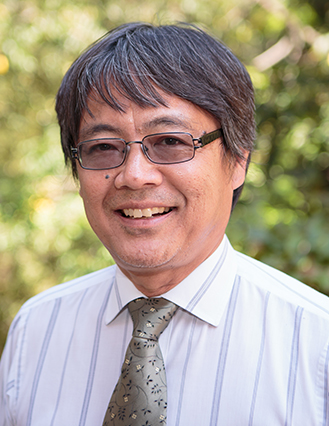
Prof. George Abe
Professor
George Abe is a lecturer at the UCLA Anderson School of Management and faculty director of the Strategic Management Research (SMR) program. SMR is the field study project required of Anderson’s Executive MBA students. He teaches entrepreneurship, business plan development and field study program advisories.
As a graduate student at UCLA, Abe studied with Leonard Kleinrock on pre-Internet data networking. In 1976 he joined Computer Sciences Corp, a defense contractor providing, among other services, timesharing services — what we now call cloud computing. He designed the IP data service for CSC’s spinoff, Infonet Services Corporation, and later signed on as business development manager at Cisco, where he became the company’s first product manager for data over cable products. In 1997 Cisco published Abe’s book, Residential Broadband, an early practical guide to what were then emerging access networks and internet technologies, published in two editions.
Abe circled back to his alma mater when he joined UCLA’s technology transfer office, where commercialization of intellectual property is managed. In 2003 Senior Associate Dean Al Osborne invited Abe to teach entrepreneurship. In his teaching, he emphasizes deal terms and team building. “Team building is the key,” he says. “Students underestimate it. They come in believing fundraising is the hardest part. The socialization process is important and overlooked.”
In addition to his experience in computer networking, Abe was a venture partner with Santa Monica-based Palomar Ventures and served on the board of directors of Switchcore AB, a publicly traded fabless semiconductor designer in Sweden, and several boards in the Palomar portfolio.
Abe serves on the board of advisers for UCLA’s Terasaki Center for Japanese Studies and Biotech Connection, Los Angeles.
B.A. Mathematics, UCLA
M.S. Business, Quantitative Methods, UCLA
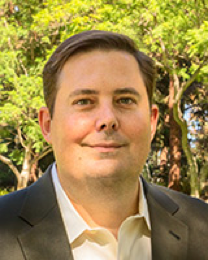
Prof. Ian Larkin
Professor
An associate professor in the UCLA Anderson strategy group, Ian Larkin’s research is focused on compensation, incentives, employee motivation and human resources. His interest in the discipline comes compliments of his first job, with McKinsey & Company, where he spent four years as an associate and engagement manager in McKinsey’s Hong Kong and Silicon Valley offices, advising senior executives on corporate strategy in the banking and high technology industries.
Larkin began his academic career as an assistant professor at Harvard Business School. He returned to his native California by accepting a position with UCLA Anderson, which he calls “an outstanding school with a top MBA program and a close proximity to Silicon Beach, where so much is going on in the technology space” — his targeted industry of interest. His primary research has ranged from the examination of corporate awards and programs that companies utilize to recognize employee performance and their potential unintended costs to decision-making influenced by various sales tactics and their respective cost outcomes in numerous industries, including technology and medicine. He is currently looking at the effects that workplace wellness programs have on employee motivation and productivity, as well as “gamification” in the workplace, which uses nonmonetary rewards to encourage improvements in employee behavior.
Larkin’s research has been published in a number of professional journals, including the Journal of the American Medical Association, Management Science, Organization Science, Journal of Labor Economics, and Strategic Management Journal, and has been cited by leading media outlets that include The Wall Street Journal, The New York Times, Newsweek, Forbes, Slate, and National Public Radio. He is an Associate Editor of Management Science, a leading academic journal in business management and strategy.
Larkin received his bachelor’s degree from the University of Arizona. He also spent time living in China, Japan and Taiwan, where he learned to speak conversational Mandarin Chinese and Japanese, which may have helped him land his first position with McKinsey. Larkin earned his Ph.D. at Haas School of Business at UC Berkeley.
When not in the classroom or conducting research, Larkin enjoys cooking (having studied the art professionally in France), traveling, writing fiction and supporting the Green Bay Packers, of which he is one of more than 360,000 individual shareholders.
Education
Ph.D. Business and Public Policy, 2007, UC Berkeley
M.Sc. Economics, 1997, University of London
B.S. Economics, Chinese Studies, Japanese Studies, 1996, University of Arizona
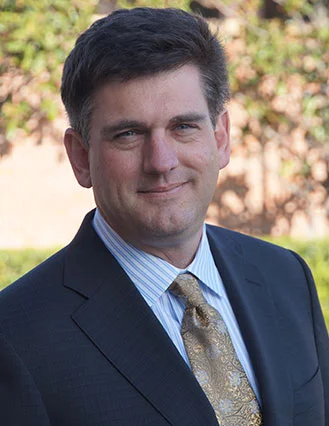
Prof David Wessels
Professor
David Wessels (Ph.D) is an adjunct professor of finance and a director of executive education in the Wharton School at the University of Pennsylvania. Wessels teaches courses on corporate valuation, venture capital and performance management to undergraduates and MBAs in Philadelphia and San Francisco, along with global executive audiences.
Wessels has been recognized by his students with Wharton’s MBA excellence in teaching award, and has been acknowledged nationally for his research on organizational structure and financial performance. His co-authored book, Valuation: Measuring and Managing the Value of Companies, is accepted as the seminal text for students of corporate valuation and investment banking.
Wessels has served on the executive development and training faculties at Bank of America Merrill Lynch, Coca-Cola, Ericsson, Estee Lauder, Home Depot, Lockheed Martin, McKinsey & Company, Microsoft, Philips, PricewaterhouseCoopers, Siemens and UPS.
Before joining the Wharton School, Wessels served on finance faculty of the Goizueta Business School at Emory University. Prior to Emory, he was a management consultant with McKinsey & Company and a technology analyst for Harbourvest Venture Partners in Boston.
Education
Ph.D. Finance, UCLA Anderson School of Management
B.S. Economics, University of Pennsylvania
B.S. Computer Science, University of Pennsylvania
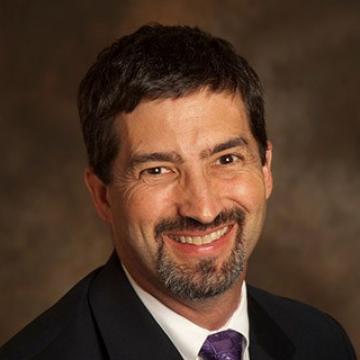
Prof Steve Walton
Professor
Professor Walton joined Goizueta Business School in the Fall of 1996. After receiving his PhD in 1993 from the University of North Carolina at Chapel Hill, Steve served on the faculties of North Carolina A&T State University and Baylor University. Steve’s efforts in the classroom have been highlighted by 11 teaching awards, including The Emory Williams Distinguished Teaching Award, a university-wide honor, and the Adler Prize for Excellence in Teaching. Before coming to Emory, Steve also worked for IBM.
Steve’s current interests include strategic execution, operational decision making and the impact of leadership on operations outcomes. Steve has published in Journal of Operations Management, European Journal of Operational Research, International Journal of Operations and Production Management, International Journal of Purchasing and Materials Management and the Proceedings of the Decision Sciences Institute. Professor Walton also serves as a reviewer for Decision Sciences, Journal of Operations Management, the Journal of Supply Chain Management and Organization Science.
Steve’s consulting clients include Sony, First Data, UPS, The Home Depot, Delta Air Lines, Usher’s New Look Foundation, SunTrust, Panasonic, McKesson Information Solutions, The Arthur M. Blank Family Office, Siemens Medical Systems, Synovus and others.
Education
PhD in Operations Management, University of North Carolina at Chapel Hill
MA in Industrial Management Clemson University
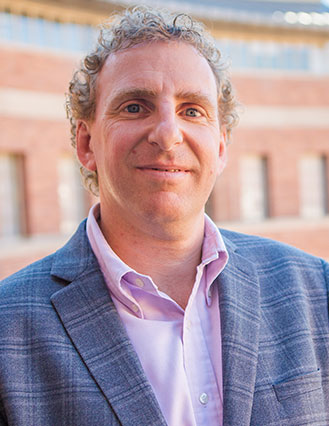
Prof. Andres Terech
Professor
Working as a consultant at Accenture in his home country of Argentina, Andres Terech (Ph. D. ’04) became a victim of the Mexican government’s decision to devalue the peso against the U.S. dollar in 1994. The “tequila effect” that this action had on the South American economy was the prime reason Terech left consulting and took advantage of a full EMBA scholarship at IAE Business School, Universidad Austral in Buenos Aires, before receiving a second scholarship to earn a Ph.D. at UCLA Anderson in 2004.
He began his academic career as an IAE faculty member in 1997, teaching MBA students and executive programs. After he received his Ph.D., Terech traded southern hemisphere summers for winters, traveling north to the U.S. to teach elective courses and conduct research as a visiting professor at UCLA Anderson. He later became a full-time adjunct associate professor of marketing in 2009.
It’s not surprising that Terech’s strongest area of research is in retailing and includes modeling consumer choice behavior and competitive market structure.
“I grew up in the retail environment, as my family had two stores in a town north of Buenos Aires,” he says. His consulting experience covers several marketing challenges, such as new product launches, marketing plans and growth strategies, promotion and communication programs, distribution strategy, pricing and sales promotions, and feasibility analysis. He has advised startups and Fortune 500 clients in a variety of industries, including retailing, agribusiness, financial services, textile and automobile, and sits on the advisory boards of several start-up companies.
Terech’s current work focuses on studying the integration of different methods of shopping available to consumers and retailers performance metrics. He takes a special interest in marketing issues related to branding, pricing, franchising and retailing — evident in the Latin American Franchising Research Council (CLIF) he founded in 2007 in Argentina, which brought together academics and franchisors to help promote intellectual leadership in franchising. He teaches courses in pricing, marketing strategy, marketing analysis and frameworks, retail management, and sales force and distribution channel strategy. He has also taught executive seminars at different business schools in Spain, Mexico, Chile, Peru, and Ecuador.
He enjoys writing cases for publications, describing it as “the ideal way to connect theory and practice, to provide real context to frameworks and theories.” Much of his work has been published in scholarly journals and specialized business publications, such as Case Research Journal, Marketing Letters and Harvard Business Review. When not focusing on his research, Terech can be found occasionally on a basketball court, coaching soccer and baseball, or taking the family on yearly camping trips.
Education
Ph.D. Marketing, 2004, UCLA Anderson School of Management
MBA 1997, IAE Business School, Universidad Austral
B.A. Business Administration, 1994, Universidad de Buenos Aries
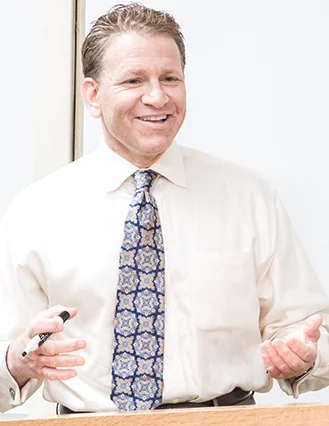
Prof. Eric Sussman
Professor
Accepting an offer to teach as a means of earning some additional income may have been one of Eric Sussman’s more auspicious decisions. Currently an Adjunct Professor in accounting and real estate at UCLA Anderson, Sussman first taught a certified public accountant exam review course after graduating from Stanford’s Graduate School of Business and accepting a position with a small real estate investment firm. It was a role he thoroughly enjoyed. So, when he was first offered a lecturer’s position at Anderson by his mentor and former teacher, David Ravetch, he jumped at the opportunity.
Since 1995, he has been teaching courses in the areas of cost/managerial accounting, financial accounting, financial statement analysis, equity valuation, corporate financial reporting and real estate investment and finance to undergraduate, graduate and Executive Education students. In addition, he has advised numerous MBA and Fully Employed MBA field study teams and led student travel groups to Brazil, China, Dubai, Saudi Arabia and Abu Dhabi. He has also served as a guest lecturer at UC Berkeley, George Washington University and the Helsinki School of Economics, and created a series on accounting and finance for the Great Courses (the Teaching Company).
Throughout his teaching career, Sussman has remained active in the real estate industry. He is president of Amber Capital Inc., manager of Fountain Management LLC and Clear Capital LLC, and managing partner of the Pacific Value Opportunities and Clear Opportunity Fund, which have acquired, rehabilitated, developed and managed more than two million square feet of residential and commercial real estate in the past 20 years. The firms’ portfolio at present consists of industrial, multifamily and single-family residential, and retail properties.
He is also audit committee chairman and former chair (2012-2018) of the Board of Trustees of Causeway Capital’s group of funds (International Value, Emerging Markets, Global Value, Global Absolute Return Funds, International Opportunities, and International Small Cap), which collectively have more than $15 billion in assets. He sits on the board of Pacific Charter School Development Inc. and was former chairman of the Presidio Fund and former audit committee chair of Atlantic Inertial Systems Inc., a producer and manufacturer of electromagnetic sensors.
As an aside, he created Insight FSA™, an analytical software tool that automatically and critically measures, evaluates and reports upon the financial accounting and corporate reporting risk for public companies via EDGAR Online.
With his wide range of expertise, Sussman has consulted for large and small firms, nationally and globally, and is a frequent lecturer on varied financial, accounting and corporate reporting topics. He has served as an expert witness and consultant for commercial litigation, involving matters of corporate financial reporting and disclosure, audit effectiveness, valuation, real estate due diligence and related practices, and overall damage analyses. He is a licensed CPA in the State of California.
Sussman relies on his real-world experiences to make his classes relatable and exciting, aspects that are not lost on the students as well as faculty. He is an eight-time winner of the MBA Teaching Excellence Award, a seven-time winner of the FEMBA Teaching Excellence Award and recipient of numerous other teaching awards and national recognitions. A little known fact: this native Californian is a third-generation UCLA graduate.
Education
MBA 1993, Stanford University (Arjay Miller Scholar)
B.A. Business and Economics, Summa Cum Laude, 1987, UCLA
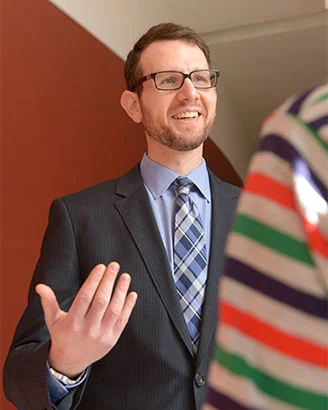
Prof. Noah Goldstein
Professor
Goldstein teaches the psychology of persuasion and advises corporate and government organizations, where his insights from tested persuasion research have had substantial impact. He has also served on the Scientific Advisory Boards of two Fortune Global 500 companies.
Goldstein has coauthored two widely acclaimed books on persuasion. Yes!: 50 Scientifically Proven Ways to Be Persuasive, published in 2008, was a New York Times best-seller that has been translated in over 25 languages. He and his colleagues most recently published The Small BIG, which presents new science showing how small, often ignored changes to one’s influence strategies can pay disproportionately big dividends — all without compromising one’s ethics.
Before he was a professional behavioral researcher, says Goldstein, “I was an amateur persuasion scientist.”
At age 16, Goldstein unwittingly conducted his first controlled persuasion experiment. Working a summer job in telemarketing, he noticed the company’s standard script wasn’t exactly persuasive. So he made strategic adjustments to it and tested them on every other call he made. He very quickly found that the new pitch was far superior, leading him to handily surpass his far more experienced colleagues in sales. “That experience showed me the power of using the scientific method to go beyond anecdotes, hunches and personal experience to discover what really makes something persuasive.”
More than 20 years since his initial foray into the science of persuasion, Goldstein is still focused on what research can tell us about how to be more persuasive. He teaches his MBAs to understand what researchers have learned about the factors that make persuasion strategies maximally influential. Although his courses require a deep understanding of persuasion research and theory, his primary focus is on applying the principles of persuasion to make the students more effective influencers in their professional and personal lives. “If my students learned the theory without knowing how to apply these principles in a variety of contexts, I would feel like my job isn’t done.”
Education
Ph.D. Social Psychology, 2007, Arizona State University
M.A. Social Psychology, 2004, Arizona State University
B.S. Human Development, 2000, Cornell University
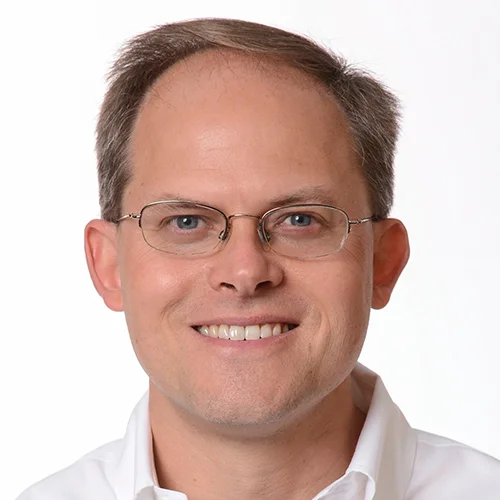
Prof. Olav Sorenson
Professor
Olav Sorenson joined the UCLA Anderson faculty in 2020. His primary stream of research pertains to economic geography, focusing on how entrepreneurship influences the growth and competitiveness of regions within countries, and on why some regions appear more supportive to entrepreneurs than others. “I was in graduate school in the mid-1990s at Stanford, in Silicon Valley, and it seemed like everybody and their brother was getting involved in a startup,” Sorenson says. “That’s really what got me interested in entrepreneurship and interested in ‘Why Silicon Valley?’ What was different about Silicon Valley than other places?”
He has called attention to unexpected consequences of the fact that social capital plays an important role in entrepreneurial success. Largely in recognition of this research, Sorenson received the 2018 Global Award for Entrepreneurship Research.
His secondary streams of research have addressed the relationships between basic science and innovation and how organizations can better learn from their interactions with customers and from their manufacturing experience.
In total, he has delivered nearly 400 research presentations and has had more than 90 papers published on these subjects, in journals such as Science, the American Journal of Sociology, the Journal of Financial Economics, the Review of Economics and Statistics, Administrative Science Quarterly, Strategic Management Journal and Research Policy. Sorenson serves as a department editor for Management Science and as a deputy editor at the American Sociological Review. He has also served in editorial positions at more than a dozen other journals.
Sorenson’s Venture Capital Strategy course is a version of one he’s taught since 2005. “My goal with that course is to do something that’s a little different from the typical venture capital course, which is usually about valuation and contract terms,” says Sorenson. “This course comes more from the perspective of someone who would be an active venture capital or angel investor, and some of the types of strategic decisions that are involved with that.” He’ll also be teaching Entrepreneurship and Venture Initiation, an introductory entrepreneurship course.
In addition to his research and teaching responsibilities, Sorenson joins the Harold and Pauline Price Center for Entrepreneurship & Innovation as faculty research director. In that role, he plans to build on the curricular offerings of the Price Center and create a research arm dedicated to entrepreneurial studies. Sorenson also plans to mentor student entrepreneurial teams within the Anderson Venture Accelerator and those participating in the school’s Business Creation Option field study.
From 1999 to 2005, Sorenson taught strategy courses at UCLA Anderson. Prior to returning to Anderson, he held the Frederick Frank ’54 and Mary C. Tanner Professorship at the Yale School of Management and, before that, the Jeffrey S. Skoll Chair in Technical Innovation and Entrepreneurship at the University of Toronto. He has also served on the faculties of London Business School and the University of Chicago, and has held visiting appointments at the Hong Kong University of Science and Technology, SDA Bocconi, Universidad Carlos III, Melbourne Business School, Singapore Management University, the National University of Singapore, BI Norwegian Business School, the Stanford Graduate School of Business and INSEAD.
Sorenson received his bachelor’s degree from Harvard College and his master’s and doctoral degrees from Stanford University. He has also received an honorary doctorate from Aalborg University.
Education
Ph.D. Sociology, 1997, Stanford University
M.A. Sociology, 1994, Stanford University
A.B. Social Studies, 1991, Harvard College
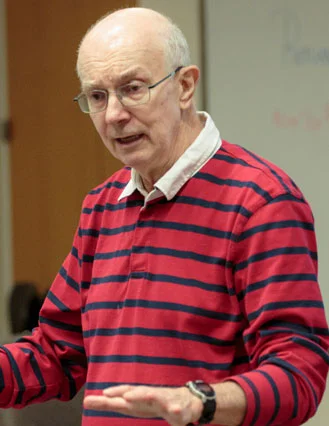
Prof George Geis
Professor
George T. Geis teaches at UCLA Anderson in the areas of mergers & acquisitions, financial modeling, entrepreneurship, and accounting. He has been voted Outstanding Teacher of the Year at UCLA Anderson five times. Geis has also served as Associate Dean and Faculty Director of UCLA Anderson’s Executive MBA program and Faculty Director of Anderson’s Mergers and Acquisitions Executive program.
Geis has taught mergers and acquisitions at the Haas School, UC Berkeley and entrepreneurial finance at Trinity Business School in Dublin, Ireland. He has been a visiting professor at Bocconi University in Milan, Italy as well as at the Darden School of Business at the University of Virginia. Dr. Geis is an expert on M&A activity in technology, communications and media markets. His latest book, Semi-Organic Growth, provides an in-depth analysis of Google’s innovative approach to M&A — see here for a video interview on this book. Geis’ research interests include market modeling for M&A-related strategies as well as the use of natural language processing for strategic analysis. His seminar “Analyzing Google’s Acquisitions” can be viewed here.
A National Science Foundation and Woodrow Wilson Honorary Fellow, Dr. Geis has extensive consulting experience and has published dozens of professional articles and six books. He is the recipient of the Financial Executives Institute Award for outstanding achievement in finance. In 2013, Geis was a Batten Fellow at the Darden School, University of Virginia.
Dr. Geis taught in the LEAD Summer Institute for minority youth for more than 10 years. He has provided management education for directors of Head Start programs nationwide as well as for Iraq and Afghanistan veterans in UCLA’s Entrepreneurs’ Bootcamp for Veterans with Disabilities. His 16- tape lecture series on “Statistical Analysis in Business” appeared as part of the Teaching Company’s Super Star Teacher series.
Geis writes an M&A blog at http://maprofessor.blogspot.com/ and a streaming video natural language processing blog at http://streamingvectors.blogspot.com/.
Geis received a B.S. “summa cum laude” and with “honors in mathematics” from Purdue University, an M.B.A. from University of California, Los Angeles, and a Ph.D. from University of Southern California.
Education
Ph.D. Educational Psychology, 1977, USC
MBA Finance, 1981, UCLA
B.S. Mathematics, 1966, Purdue University
Learning Objectives:
By the end of the first in-class UCLA module, you will be able to:
- Understand the process of building a robust strategy for your business
- Ensure that you develop a solid plan for executive your strategy and deploying it in the context of your business
- Develop the ability to lead your organization and the senior team through effective persuasion and influence
- Analyze the current performance of your business to drive future growth and bring all your learning together to act on the business plan for your venture
Classroom Methods:
The classroom module will use various exercises, case studies, team assignments and class discussion to bring alive the complexities in the subject areas. You will also spend time on building and refining your own business plan that will help you resolve the complexities of a new business area (or your won business) and apply your learnings from within the program as well as your personal experiences to find solutions to be applied when you return. It is required that you go through all the assigned cases as well as pre-reads and prepare for the session before the class. It will be greatly beneficial for you and the other participants to go through the material provided, including online modules, so that the discussion can be rich, and help clarify details with the faculty members during the in-class session.
Support
Please email [email protected] for any support required with respect to the program, course or platform.
